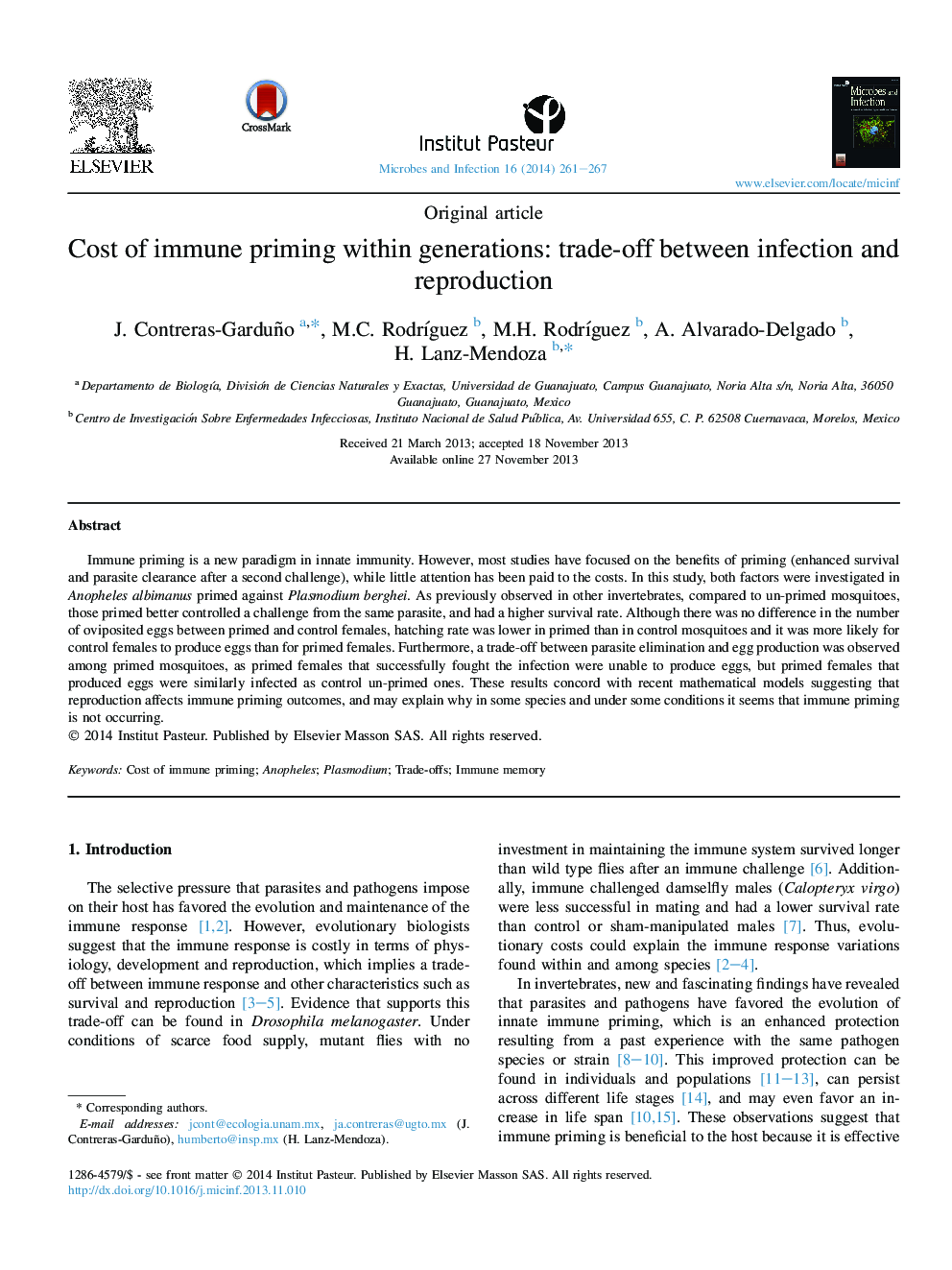| کد مقاله | کد نشریه | سال انتشار | مقاله انگلیسی | نسخه تمام متن |
|---|---|---|---|---|
| 3414767 | 1224893 | 2014 | 7 صفحه PDF | دانلود رایگان |
Immune priming is a new paradigm in innate immunity. However, most studies have focused on the benefits of priming (enhanced survival and parasite clearance after a second challenge), while little attention has been paid to the costs. In this study, both factors were investigated in Anopheles albimanus primed against Plasmodium berghei. As previously observed in other invertebrates, compared to un-primed mosquitoes, those primed better controlled a challenge from the same parasite, and had a higher survival rate. Although there was no difference in the number of oviposited eggs between primed and control females, hatching rate was lower in primed than in control mosquitoes and it was more likely for control females to produce eggs than for primed females. Furthermore, a trade-off between parasite elimination and egg production was observed among primed mosquitoes, as primed females that successfully fought the infection were unable to produce eggs, but primed females that produced eggs were similarly infected as control un-primed ones. These results concord with recent mathematical models suggesting that reproduction affects immune priming outcomes, and may explain why in some species and under some conditions it seems that immune priming is not occurring.
Journal: Microbes and Infection - Volume 16, Issue 3, March 2014, Pages 261–267
